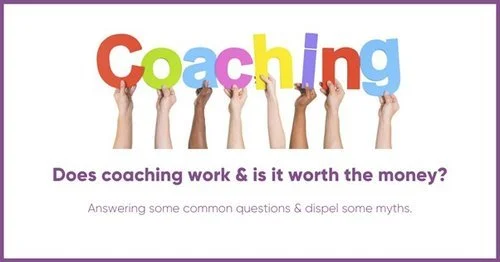Does Coaching work?
Leadership coaching is a powerful tool that can significantly impact a leader’s effectiveness and an organisation’s success.
Recent research has highlighted 8 key benefits. Leadership coaching can:
1. Improve leadership skills and competencies: Leadership coaching provides customised interventions that focus on specific leadership skills and competencies, resulting in improved leadership effectiveness (Day & Dragoni, 2015).
2. Boost self-awareness and emotional intelligence: Coaching can help you gain deeper insights into your own emotions, thoughts, and behaviours. You’ll learn a lot about yourself, as well as others! This enhances your ability to understand and manage the emotions of others, leading to improved emotional intelligence, which is critical for effective leadership (Grant, 2013).
3. Sharpen decision-making and problem-solving abilities: Coaches are often described as ‘thinking partners’, providing time and space away from the day job to step back and think more strategically. Through coaching, you can hone your critical thinking skills, ensuring you to make informed and strategic choices (Maltbia, Marsick, & Ghosh, 2014).
4. Strengthen communication and interpersonal skills: Coaching can enhance your communication skills, including giving and receiving feedback, communicating confidently and with impact, enabling you to build better relationships with your team and stakeholders. Working with a coach can provide a unique opportunity to practice conversations in advance, in a safe space, and with feedback, to hone your skills and confidence (Jones, Woods, & Guillaume, 2016).
5. Navigate change and uncertainty with confidence: Leadership coaching can provide you with tools and strategies to effectively manage change and uncertainty, enabling you to lead your team through challenges with resilience and adaptability. (de Haan, 2012).
6. Elevate team performance and productivity: As you become a more effective leader through coaching, you can create a positive work environment that fosters team collaboration, motivation, and productivity, resulting in improved team performance. (Theeboom, Beersma, & van Vianen, 2014).
7. Improve team performance and productivity: Effective leadership behaviours and strategies that you develop in coaching translate into improved team performance and productivity, as you learn how to lead and motivate your team more effectively (Grant, 2013).
8. Contribute to organisational effectiveness and success: The improved leadership skills, self-awareness, decision-making, communication, and team performance that you gain from coaching can ultimately contribute to the overall effectiveness and success of your organisation. (Day & Dragoni, 2015).
Investing in leadership coaching can yield significant positive outcomes for you as a leader and your organisation.
Through coaching, leaders and managers gain the skills to drive positive change, make informed decisions, build effective relationships, and navigate dynamic organisational environments. As a result, the organisation benefits from improved leadership behaviours, higher team performance, enhanced culture, and increased overall effectiveness.
Leadership coaching is a valuable investment that propels long-term success and growth, both for the individuals being coached and the organisation as a whole.
Contemplating investing in coaching? Contact me to discuss the outcomes you would like to achieve, whether personally or for your leaders and managers.
References:
Day, D. V., & Dragoni, L. (2015). Leadership development: An outcome-oriented review based on time and levels of analyses. Annual Review of Organisational Psychology and Organisational Behavior, 2, 133-156.
de Haan, E. (2012). Relational coaching: Journeys towards mastering one-to-one learning. John Wiley & Sons.
Grant, A. M. (2013). The efficacy of executive coaching in times of organisational change. Journal of Change Management, 13(4), 469-491.
Jones, R. J., Woods, S. A., & Guillaume, Y. R. (2016). The effectiveness of workplace coaching: A meta-analysis of learning and performance outcomes from coaching. Journal of Occupational and Organisational Psychology, 89(2), 249-277.
Maltbia, T. E., Marsick, V. J., & Ghosh, R. (2014). Executive coaching: A conceptual framework from a complexity perspective. Human Resource Development Review, 13(1), 100-121.
Theeboom, T., Beersma, B., & van Vianen, A. E. (2014). Does coaching work? A meta-analysis on the effects of coaching on individual level outcomes in an organisational context. The Journal of Positive Psychology, 9(1), 1-18.


